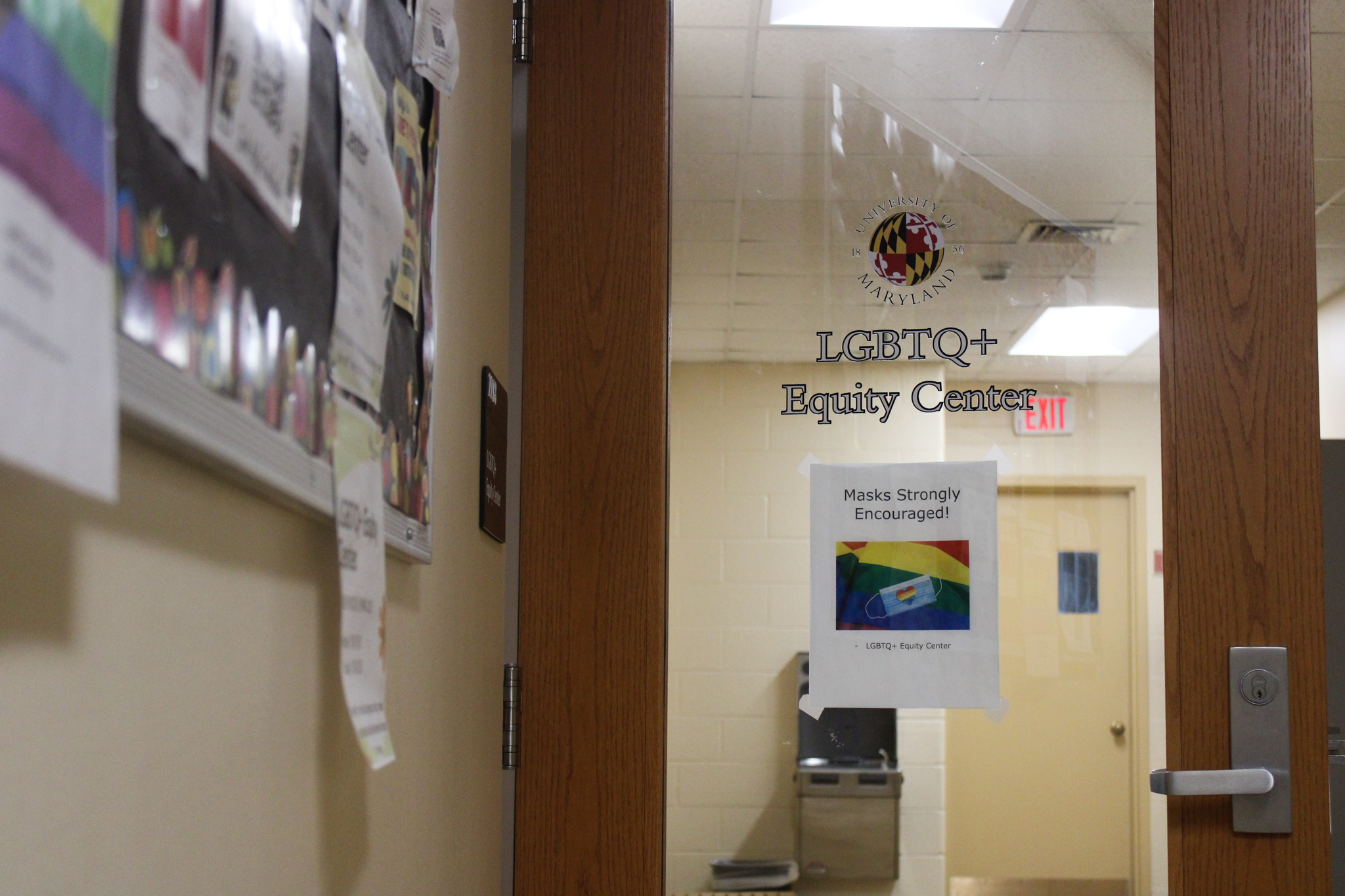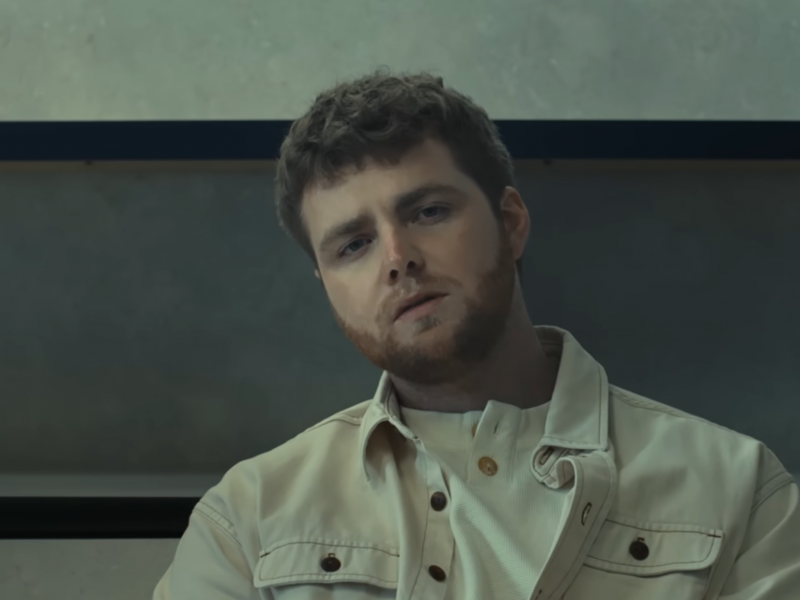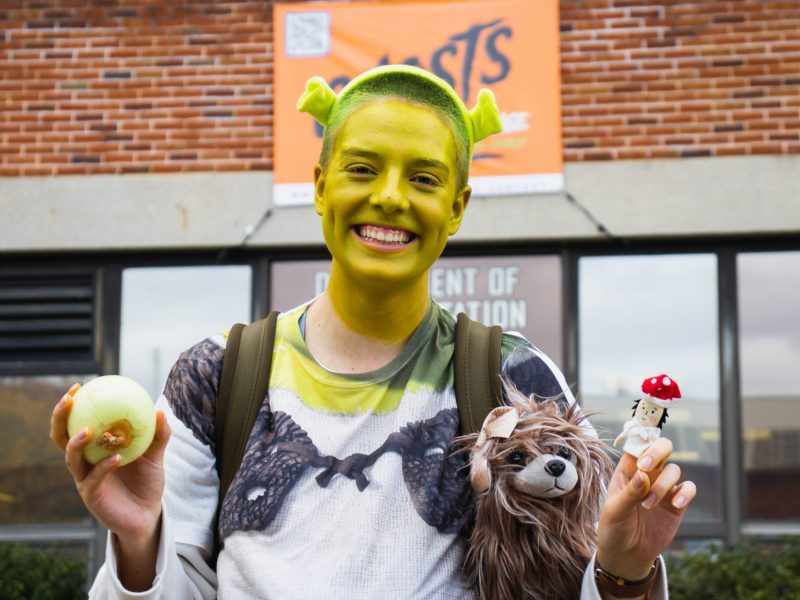The University of Maryland LGBTQ+ Equity Center hosted its virtual Queerness in Haitian Vodou lecture on Tuesday, featuring University of Miami assistant professor of religious studies Eziaku Nwokocha.
Before you pen a letter to the editor, the spelling of vodou, as opposed to voodoo, is deliberate. Haitian vodou is a separate, although related, religious practice to Louisianian voodoo, which may be the tradition’s more commonly known variety — think popular depictions such as The Princess and the Frog or American Horror Story: Coven.
Haitian vodou is an African diasporic religion that was born from traditional religions of West and Central Africa and Roman Catholicism, according to the Open Encyclopedia of Anthropology. The practice first took hold in Haiti against the backdrop of slavery around the 17th and 18th centuries, the encyclopedia said.
Nwokocha recently released her first book on Haitian vodou, titled Vodou en Vogue: Fashioning Black Divinities in Haiti and the United States. The book examines the intersection of fashion and religion in the life of Manbo Maude, a prominent vodou practitioner whose work was another focus of the lecture.
After researching gender and Africana studies at the University of Pennsylvania, Princeton University and Harvard University, Nwokocha turned her attention to ethnographic research of contemporary Haitian vodou, where she was able to combine her academic interests into a single topic of study.
[Driskell Center exhibition honoring ‘Driskell & Friends’ to open this Friday]
Tuesday’s Haitian vodou event focused specifically on the fourth chapter of Nwokocha’s book, which delves into one of Haitian vodou’s most sacred practices: spiritual marriages. Titled “Making Love to the Spirit: Sex and Dreams in Spiritual Marriages,” the chapter allows Nwokocha to explore the role of queerness in the vodou religion.
Nwokocha described the spiritual marriage ritual as “a very healing practice where spirits are speaking to people and being able to have a close encounter, and sometimes, a very pleasurable encounter with the spirits.”
This talk of spiritual sex, the actual act of having some level of intercourse or emotional connection with a metaphysical being, ran the risk of alienating the audience. However, Nwokocha expertly held the reins of the conversation, ensuring a controlled, educational descent into unfamiliar territory.
Nwokocha explained that queerness was a complicated topic within the vodou religion, which is steeped in the crossroads of tradition and identity. All practitioners, if they wish to take a spiritual partner, must take one of the opposite gender, no matter their own sexual orientation. However, the religion identifies transgender practitioners in accordance with their chosen gender identities, placing the religion in an often-complex relationship with LGBTQ+ communities.
The safety of queer individuals within vodou spaces also took center stage during the lecture. Nwokocha explained how a female Haitian vodou practitioner taken over by a male spirit would be able to kiss another female practitioner without issue, but a male practitioner taken over by a female spirit should not attempt to kiss another male as easily.
“Part of my work is thinking about the role of safety, how people are feeling safe in these spaces, and how people are finding their dynamic, their connection,” said Nwokocha. “When we think about queerness, it doesn’t look the same for every single place and every single person, every single body at the exact same time.”
[100 years later, UMD’s 1924 handbook still has lessons for students]
Nwokocha also highlighted how accurate media representations of Haitian vodou are essential to growing people’s understanding of the religion’s practices. Vodou developed in Haiti as a way for enslaved people to reclaim their sense of identity, which made it a prominent “force for liberation” in the former French colony, according to the Open Encyclopedia of Anthropology. Its connection to formerly subjugated cultures has also made it a subject of persecution throughout history, the encyclopedia said.
Nwokocha has worked to dismantle these “hyper-sensational” ideas about the religion that are rooted in its persecuted history. In the past, Netflix and other entertainment companies have tasked Nwokocha with assisting creative teams in their depiction of a historically misunderstood religion such as Haitian vodou.
“There has been a shift that is happening,” Nwokocha said. “People in productions and spaces are trying to get these African diasporic religions right, and they’re calling on experts and practitioners so they can highlight some of the nuances.”
The lecture concluded with a question and answer segment, allowing attendees to connect Nwokocha’s material to contemporary issues. Nwokocha’s work on the subject is ongoing, and she is currently working on a second book, tentatively titled ‘Tell My Spirit’: Black Queer Women in Haitian Vodou.



